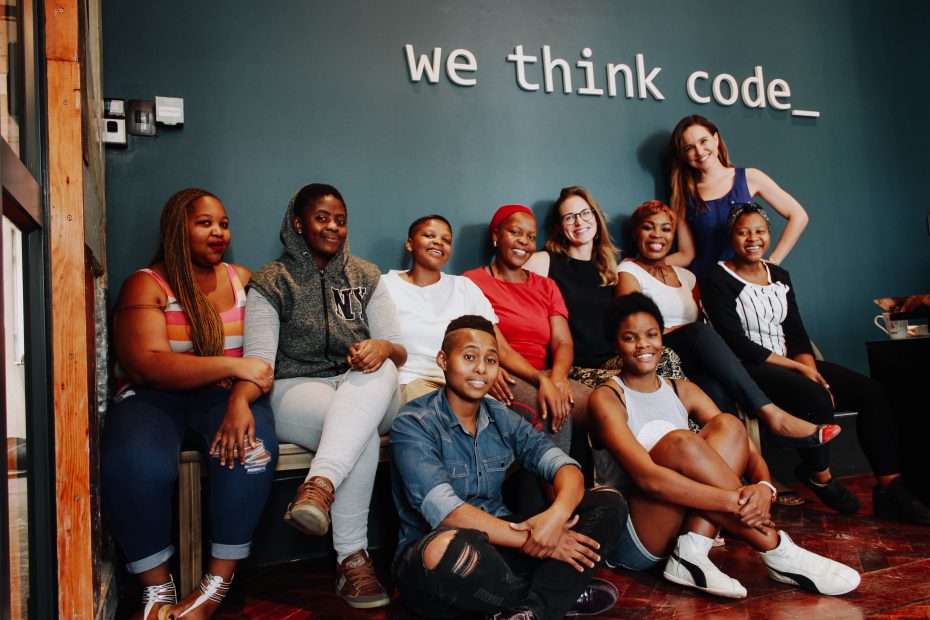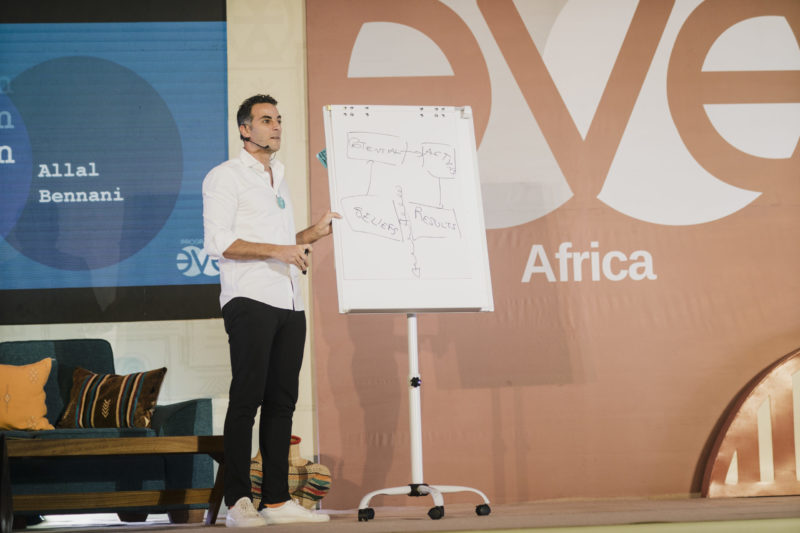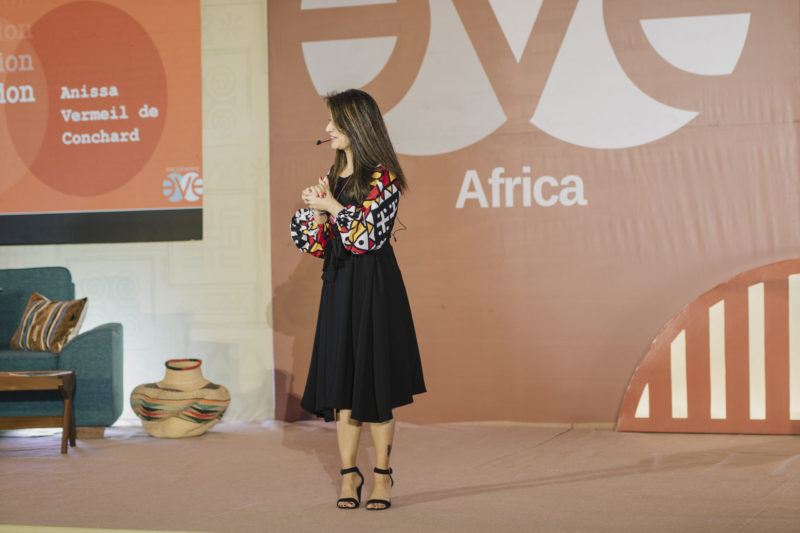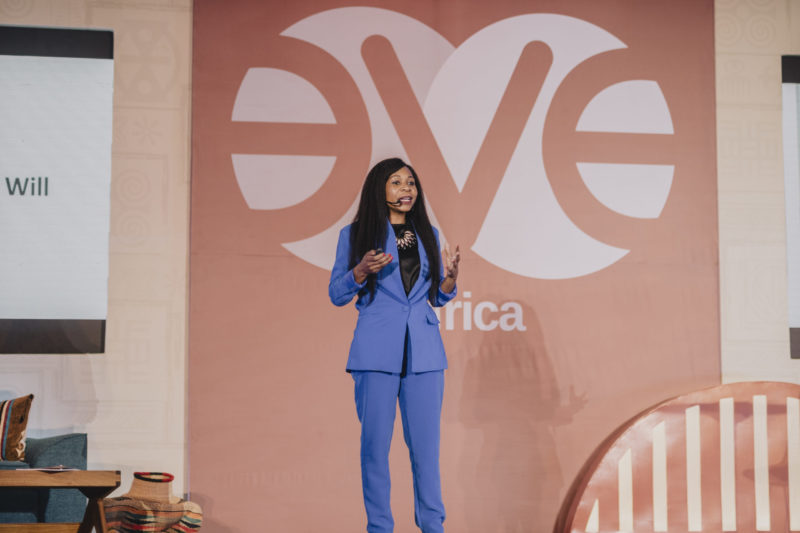Interview with Camille Agon, Co-founder of WethinkCode_, a network of South African technical schools, inspired by the “42” school model.
Hello Camille, how did you come to tackle the issue of access to digital education?

Camille Agon
Camille Agon: I’ve always been drawn to vocations that have a social impact. I actually began my career as a journalist before becoming a CSR consultant. But I quickly felt the need to go right to the front line, to take concrete action on the ground.
I joined the Breteau Foundation for the education of disadvantaged children, and was responsible for setting up a program for access to digital tools, so I dug right in to all the studies and research that had been done, and became aware of all the challenges – whether they were humanitarian, social, political or economic – involved in the field of education. On a global level, that’s the priority.
How did WeThinkCode_ come about?
Camille Agon: Working with the Breteau Foundation took me on a journey to discover South Africa. It is a very unequal country, especially with its history of apartheid, but it is also very innovative, and has a particularly good economy, so it is hungry for talent, especially in the tech industry.
I had found out all about School 42, which was founded by Xavier Niel, and I thought it would be particularly suitable for the situation in South Africa, because it makes it possible to recruit talent in unexpected places, to train people in meeting the needs of the future economy.
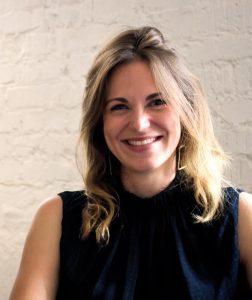
Arlene Mulder
To duplicate this model, I joined forces with Arlene Mulder, a tech enthusiast. In May 2015, we started setting up sponsorships with a view to opening the school WeThinkCode_ in January 2016. And we were successful, with enough funds raised to provide training for 120 students. The idea is that each sponsor company takes responsibility for the education of a specific number of students, and hosts them for a four-month internship program. In return, the student commits to working in the companies for at least two years.
Did you receive many applications?
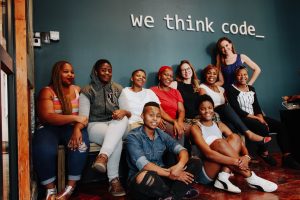
Camille Agon: We received over 50,000 applications on the online platform. As it happens, we launched WeThinkCode_ while a major social crisis was going on in the country, on the issue of university costs.
We were invited to speak on many TV and radio programmes about alternative models for financing education and, on this occasion, about the requirements to develop training structures that are tailored to the needs of the current and future economy. We came up with a proposal, whose effectiveness had already been proven elsewhere.
So what are the sociological profiles of the first class of WeThinkCode_?
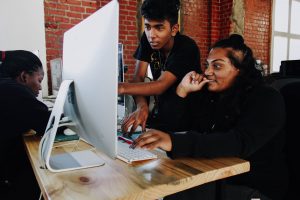
Camille Agon: Students are aged 17 to 35, come from all walks of life, and 66% are black.
We only have 16% girls and this is a very important issue for us to focus on. We do not intend to be the poor example of diversity in tech, where the proportion of girls rarely exceeds 15-20%. Our figures actually show that we are within the norm. But I am determined to do better. As a school focused on the needs of the economy and society, I want WeThinkCode_ to fully grasp the issue of women in the world of new technologies.
In your opinion, what can be done to encourage diversity in technology?

Camille Agon: There is still a lot of work to be done on the image of digital. We are managing to break through the accepted idea that digital is reserved for white people from privileged social categories, so there is no reason why we should not break the gender code as well.
For a while, we thought about opening “pools” (immersive sessions at which candidates are selected to integrate into the school – Ed.) set aside for girls only, but then we rejected that idea. I think that the issue of diversity must be treated with diversity: doing things “for girls” is not how to do it. It’s about taking action so that what is done for everyone includes both girls and boys.
For example, we need to ask how we go about selecting students in a school like ours. The skills that are developed and accepted in men are valued most, such as the spirit of competition, an adventurous attitude, risk-taking, guts, etc. But we need to move towards more common values and descriptions that can be appropriated by both genders, such as boldness, courage, a sense of problem-solving, curiosity, solidarity, etc.
Do you think that the success of local talent development initiatives is signaling a new relationship between multinationals and where they establish their businesses, particularly in Africa?

Camille Agon:South Africa is something of an exception on the continent. But if we take a look at Africa as a whole, it is indisputable that the geographical area is earmarked for the greatest transformations.
There are 200 million young people in Africa, a billion future consumers. Africa is the continent where mobile telephony has the greatest penetration… The traditional model of investment and business deployment of Western multinationals in Africa is not suited to such issues. These “imported” companies have clearly not invested enough in the human potential of the countries in which they have settled. The development of local talent is now inevitable: the future of the African economy will be shaped by Africans.
What will happen if we go on delaying the moment when we give Africa back the power to develop itself?

Camille Agon:The immediate risks are social, political and geopolitical. Poverty, lack of access to education, and lack of autonomy and economic prospects are the bedrock of conflicts and wars.
If we set this bleak scenario aside, we can also look at all the global benefits of having Africa foster its own economic development: there are new business models, means of innovation that Western economic culture has not been able to explore, solutions to problems that affect the whole world and that the “northern countries” have failed to deal with effectively. Take, for example, the issue of violence against women: we have students at the WeThinkCode_ school who are currently working on digital solutions to enable women to protect and defend themselves.
The empowerment of individuals and communities is certainly the lever for boosting innovation. Empowerment, starting with education, needs to be encouraged, and people must be trusted to devise relevant responses to the problems that affect them.
Interview by Valérie Amalou & Marie Donzel, for EVE webmagazine
Translation : Ruth Simpson



